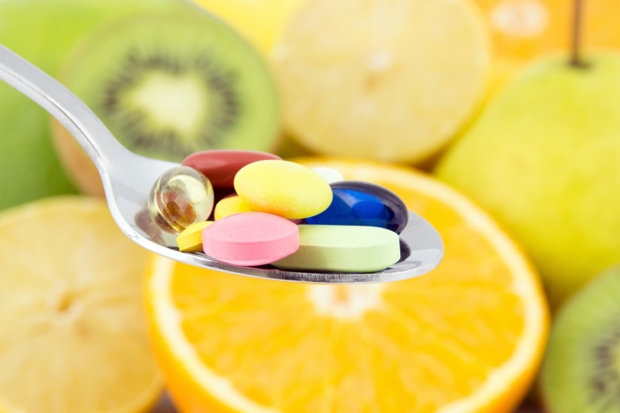Before I read this book about vitamins, I thought I knew what it would be like. It would be vaguely reassuring. It would tell me that I was consuming the right vitamins, but perhaps in the wrong quantities. Medically speaking, I expected it to point me in a certain direction. There would be chapters about scurvy and beriberi, and how these diseases can easily be cured, now we know about vitamins. There would be stuff on cancer. For a while, I would eat a lot of carrots.
Well, I was partly right. Catherine Price, a fastidious reporter, has given us the stories of scurvy and beriberi, and how these scourges were cured with vitamins. She also tells us about night-blindness, a condition that can make your eyes develop ulcers, but that can be cured with small doses of vitamin A. But, it turns out, this isn’t a book about how marvellous things are, now we know about vitamins. On the contrary. It’s about the fact that, in the scheme of things, when it comes to vitamins, we know very little. Price spent some time studying the science. ‘I was both shocked and shaken,’ she tells us.
How much do we know about vitamins? Just about enough to know that we don’t know very much at all. There are 13 — vitamins A, C, D, E, K, and eight types of vitamin B. Not a taxonomy to inspire confidence. In any case, they exist in food. We need them, not as fuel, but ‘to facilitate chemical reactions in our bodies that keep us alive’.If we were cars, they would be more like oil than petrol. With a car, you need to fill up with petrol more often than you need to change the oil. And so it is, mostly, with vitamins. For instance, you can store several months’ supply of vitamin A in your liver. But there are exceptions. You can’t store vitamin C for very long at all.
The scurvy story arrives early. It’s well told. Scurvy makes your teeth fall out, and parts of your body swell up. Two million sailors died of it. That’s because, in the age of wooden ships, sailors didn’t eat fruit and vegetables. They ate biscuits and salted meat. They’d be on a long voyage, with sore gums and swollen limbs, and every so often they’d stop somewhere and eat some fruit, and — bingo! they’d get better. Eventually, doctors worked the whole thing out. Vitamin C helps our bodies make the enzymes that turn salt beef into collagen. That’s our internal glue. Without it, we start to fall apart.
Price also tells us about xerophthalmia — the condition called ‘dry-eye’, or ‘night-blindness’. Old-time sailors suffered from that, too. But it took longer to develop than scurvy. With dry-eye, your body stops being able to make the mucous that keeps your cornea lubricated. After a while, the cornea starts to become worn. In the end, it ‘may melt away entirely, destroying the eye and causing permanent blindness’. But the condition can be reversed with a small dose of vitamin A, which helps the body make an enzyme that, in turn, makes the stuff that lubricates our eyes. On a voyage, scurvy happens before dry-eye, simply because vitamin A lasts longer in the body than vitamin C.
But here’s the thing. Sure, we know a bit about what vitamins do. And sure, we know how to synthesise them in labs. This means that, if you have a severe vitamin deficiency, a pill or a small tincture will be a great help. Beyond this, though, we don’t know half as much as we’d like to know. For instance, the idea that taking megadoses of vitamins might cure cancer looks, to say the least, pretty shaky. In two studies, smokers who took high doses of vitamin E and beta-carotene (a substance that our bodies use to make vitamin A) seemed to get more cancer. Maybe we should just stick to the doses that occur naturally in food.
When it comes to vitamins, here’s where we are. We’re not totally ignorant. And we’ve got beyond the dangerous point where we think total knowledge is just around the corner. We’re beginning to see the arduous journey ahead. On this point Catherine Price quotes her former teacher, the food writer Michael Pollan: ‘We still have not gazed into the soul of a carrot.’
Available from the Spectator Bookshop, £11.99 Tel: 08430 600033






Comments